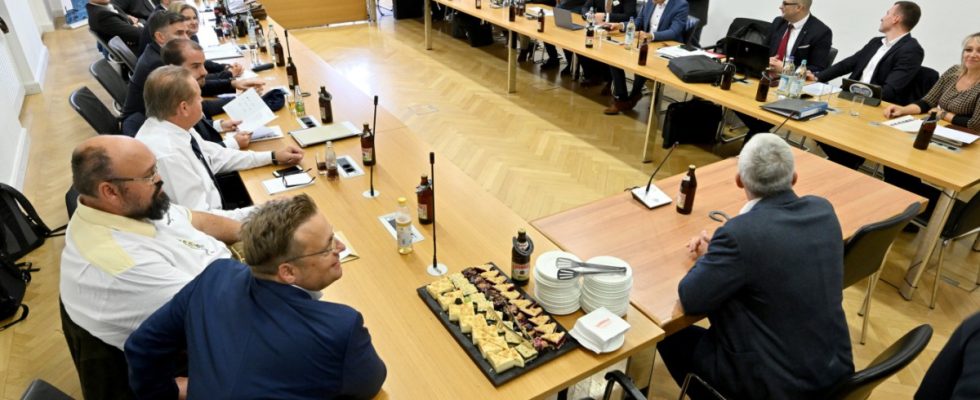The new chairwoman of the AfD in the state parliament is a well-known one: Katrin Ebner-Steiner, parliamentary group leader from 2018 to 2021 and top candidate in the election campaign. The 45-year-old was clearly elected on Wednesday evening with 27 yes votes, four no votes and one abstention. There were no opposing candidates. Requests for a conceivable dual leadership did not find a majority right from the start. The AfD parliamentary group had previously formed in the state parliament. It has 32 MPs; in the last period, according to the election results, there were initially 22, and after numerous resignations, in the end there were 17. Ebner-Steiner had already been considered the favorite in party circles everywhere. She announced a “policy for her own citizens”.
The internal dispute between the ethnic camp surrounding the formally dissolved “wing”, to which the Lower Bavarian belongs, and the comparatively moderates was formative for five years. After leaving the party, two years ago a moderate leader came to the helm, headed by Ulrich Singer with Franz Bergmüller and Gerd Mannes as vice-presidents; under narrow, changeable majorities. Now, however, the matter was clear.
According to analyzes of the South German newspaper 18 out of 32 MPs are considered close to the “wing”. Some newcomers have made it into parliament who are said to have a strict right-wing line. Only a few are considered decidedly critical of Ebner-Steiner and her camp. Even before the election on Wednesday, there was talk in party circles of a “concrete majority”, so nothing could shake it. After her election, the new boss said that there was “actually no opposing side” and that from now on all opinions would find their place in the group. The election of the remaining leadership board was announced for the evening.
First, the new parliamentary group debated the future statutes for several hours on Wednesday afternoon. For other parties, this working basis is a mere formality – but for the AfD, with its directional struggles, it has a different weight. In the previous parliamentary group, the board no longer had a majority behind it, but could not be voted out due to a clause in the statutes. The discussions behind closed doors were about securing long-term power.
As the future opposition leader – just ahead of the Greens with 14.6 percent – the AfD is demanding, among other things, a vice president in the state parliament, which it has been denied for five years. However, Prime Minister Markus Söder and the new CSU parliamentary group leader Klaus Holetschek recently indicated that this would remain the case.

